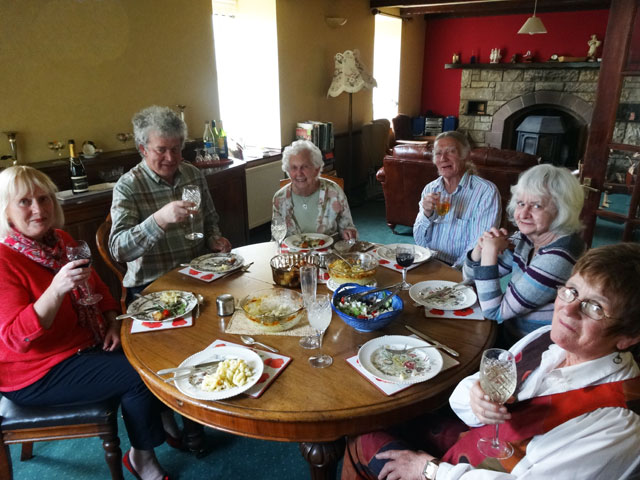MedicalAlertBuyersGuide.org is an independent review site. We may earn compensation from the providers below. Learn More
Senior Diets: High Protein Diets Keep the Elderly Healthy

Talk to any senior citizen and most likely the subject of eating or food will come up. Eating or even trying to decide what to eat may be hard for them for many reasons. For people who may be experiencing health issues, physical decline, or memory challenges, eating healthy may be the last thing on their minds. So, what should you encourage your seniors to eat every day to stay healthy?
The U.S. recommended daily allowance is often more food than a senior can or wants to eat, so making healthy choices becomes paramount as we age. Certain nutrients become more necessary as we get older, including calcium, vitamin D, fiber, vitamin B12, and potassium. The best sources of these nutrients include fortified cereals and fruit juices, dark leafy greens, lean meats, some fish and seafood, whole-grain breads, beans, peas, and most fruits and vegetables. Specific supplements may also be required as your loved one ages – be sure to check with their physician first.
Recently a new study has been published revealing that older adults should be eating a diet rich in protein and low in calories – this helps maintain muscle mass and improve bone density as we age. A diet rich in protein will include:
- Lean meats including poultry
- Seafood
- Processed soy products
- Eggs or egg substitutes
- Legumes (beans and peas)
- Low-fat dairy such as milk, yogurt, and cheese
- Nuts and seeds that are low in fat
Seniors may not need a full 2,000 calories a day, but a good portion of their daily intake should come from lean proteins if they don’t have a contraindicated medical condition such as kidney disease (this table illustrates that in general men and women over age 51 should have between 5 and 5.5 ounces of protein a day). Sample menus are also provided by the National Institute on Aging if your senior needs a simple place to start. Menu planning may be difficult for senior citizens for a variety of reasons, so making a list of foods that they like to eat may be the easiest way to make sure they are getting the nutrients they need. Making this list visible is also helpful.
Create a three-column document. The first column can be Proteins/Dairy, second column can be Fruits/Veggies, and the third column can be Grains/Healthy Fats. Sit down with your loved one and fill in these columns with their preferences of food they enjoy eating to make healthy choices easy and quick when faced with mealtime. Laminate and post this document in an easy-to-find place such as on the outside of the refrigerator or inside a cupboard for quick reference.
In addition to protein, seniors also need to keep their hydration intake steady. Drinking water is the best way to do this, although sparkling water, unsweetened tea or coffee also counts. It is extremely common for seniors to get dehydrated quickly, especially in the warmer months or if they are taking certain medications, so make sure that their liquid intake is adequate. Herbal teas, low-fat milk or milk alternatives such as almond milk, juices, and even clear soups can count toward their liquid intake so make sure they are available and easy to access. Women should aim for the equivalent of nine glasses of fluid and men should have 13 glasses of fluid every day.
Senior diets don’t have to be all bran muffins and TV dinners, and they shouldn’t be. As long as your loved one is willing and able to make healthy choices in their diet, then they should get all the nutrients that they need. With a little planning, your loved one can eat a healthy diet for many, many years to come.

